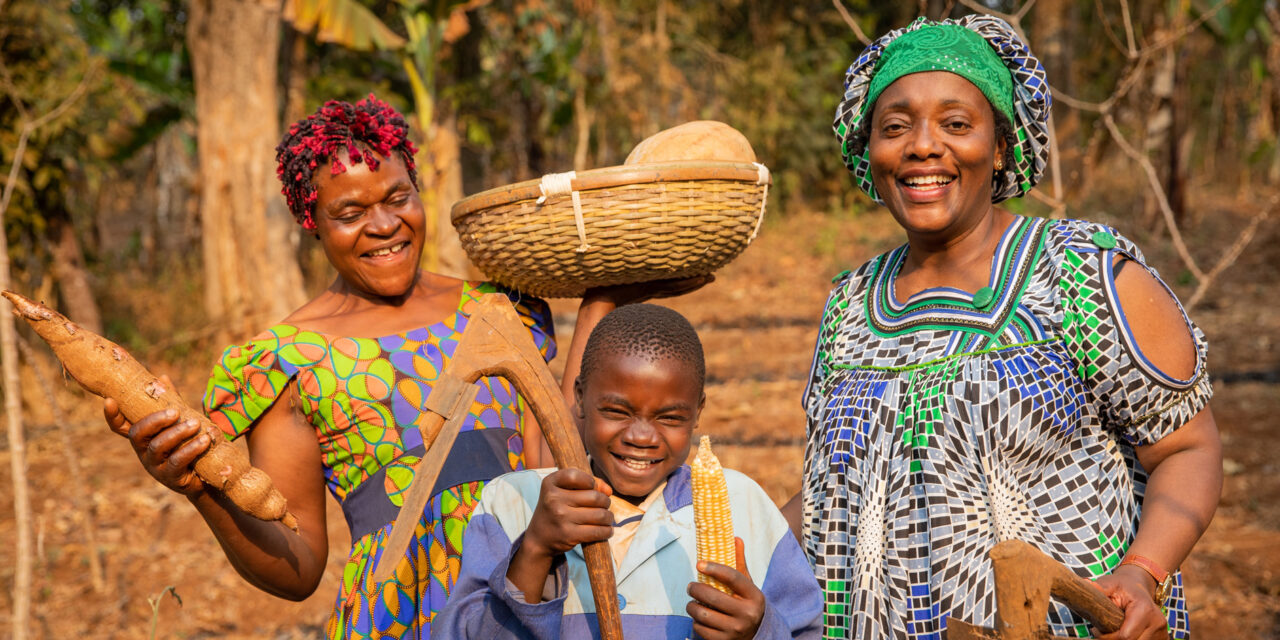REIMAGINING MISSIONS: SE AFRICAN RESILIENCE IN CRISIS
[15 Minute Read]
Dear fellow participants in God’s mission,
Grace and peace to you in the name of the Lord Jesus Christ.
This report presents key findings from a research project investigating how churches in Southeastern Africa are responding to crises. The research team, under the leadership of Focus Team Leadership Training, and in partnership with the University of Pretoria and other networks, embarked on a 72-day road trip across Southeast Africa, engaging with church leaders, community organisers, and various stakeholders. The goal was to listen, learn, and better understand contextual approaches and responses to crises.
The content below highlights key findings from these discussions and offers practical steps to help church and organisational leaders build more resilient communities that can proactively respond to crises as an act of love towards one another and our neighbours, and a witness to God’s loving kindness to us all.
Defining Crisis and Resilience
The research project revealed that the understanding of “crisis” and “resilience” varies across different regions and is shaped by local contexts and cultural nuances.
Crisis is generally understood as a state of profound disruption and distress, characterised by challenges that lead to lamentation, distress, and frustration. The specific nature of these challenges, however, differs across regions:
- Livingstone, Zambia: Crisis is defined as a predicament marked by difficulty and challenges, leading to lamentation, distress, and frustration.
- Lilongwe, Malawi: Crisis is a state of profound disruption and distress where individuals and communities face challenges such as economic hardship, mental and emotional strain, social and cultural conflicts, and a breakdown in identity and support systems.
- Jinja, Uganda: Crisis is a multifaceted challenge arising from personal, societal, and spiritual issues, including family breakdowns, poverty, unemployment, and loss. It also involves cultural and moral tensions and spiritual struggles.
Resilience is generally viewed as the capacity to withstand and overcome adversity. Different communities emphasise unique aspects of resilience:
- Gaborone, Botswana: Resilience is summarised as the ability to “stand against all odds,” reflecting a spirit of perseverance, consistency, and strength.
- Livingstone, Zambia: Resilience encompasses community strength, emotional endurance, and spiritual faith.
- Mangochi, Malawi: Resilience is the unwavering strength and courage to persevere, rooted in self-belief and obedience to God. It is characterised by love, care, understanding, forgiveness, and non-judgement.
- Sekiwunga, Uganda: Resilience involves trusting in God’s purpose through challenges, forgiveness, self-sacrifice, and service to others. It includes faith, perseverance, mentorship, being a light to others, and relying on God’s guidance.
Key Findings from the Research Project
The research project brought to light several key findings relevant to church and organisational leaders:
1. The Church as a Central Actor in Crisis Response:
Across all regions, the Church was consistently identified as a central institution in responding to crises. This is due to several factors:
- Trusted Institution: The Church is often seen as a trusted entity within communities, making it a natural point of contact during times of need.
- Existing Infrastructure: Churches often have existing infrastructure and resources, such as buildings and social networks, that can be leveraged during crises.
- Moral Authority: Church leaders are often looked to for guidance and support, particularly in situations where traditional leadership structures have been disrupted.
2. The Importance of Contextualised Responses:
Discussions revealed that crises are often multifaceted and deeply personal. Responses, therefore, need to be tailored to the specific contexts of urban and rural communities. A one-size-fits-all approach is unlikely to be effective.
3. The Need for Collaboration and Partnerships:
Collaboration with other organisations and stakeholders is crucial for effective crisis response. This includes partnering with:
- Government agencies: To access resources and support.
- NGOs: To leverage specialised expertise and resources.
- Other churches and faith-based organisations: To share resources and coordinate efforts.
4. The Value of Storytelling:
The research project used storytelling as a tool for gathering information and fostering reflection. Storytelling allowed participants to share their experiences and insights, leading to a deeper understanding of the challenges faced and the strategies employed.
This approach proved to be highly effective for several reasons:
- Creating Safe Spaces for Sharing: Storytelling creates a safe and relatable space for individuals to share their personal experiences and perspectives. When people share their stories, they become more vulnerable and authentic, leading to deeper conversations and a greater understanding of the complexities of crises. This is particularly important in contexts where individuals might feel hesitant to express their thoughts or feelings openly.
- Eliciting Diverse Perspectives: Storytelling allows for a wide range of perspectives to be heard. Each individual’s story offers a unique window into the realities of crisis, providing a more nuanced and comprehensive understanding of the challenges faced by communities. This approach ensures that the research captures the diverse experiences and interpretations of crisis and resilience across different regions and demographics.
- Fostering Empathy and Understanding: Listening to others’ stories fosters empathy and understanding among participants. It allows individuals to connect on a human level, transcending differences in backgrounds and experiences. This empathy is essential for building bridges between communities and fostering collaborative responses to crises.
- Uncovering Systemic Issues: Personal stories often reveal underlying systemic issues that contribute to crises. By listening to individual narratives, researchers and community leaders can identify patterns and trends that point to broader societal challenges. This understanding is crucial for developing effective long-term solutions that address the root causes of crises.
- Empowering Communities: The act of sharing stories can be empowering for individuals and communities. It allows people to reclaim their narratives and find meaning in their experiences. By sharing their stories of resilience, individuals can inspire others and contribute to a collective sense of hope and strength.
- Co-creating Solutions: Storytelling can facilitate the co-creation of solutions. By sharing their experiences and perspectives, communities can collectively identify challenges, brainstorm ideas, and develop strategies that are relevant and effective in their specific contexts.
The success of the storytelling approach is evident in several aspects of the research project:
- Healing and Validation: The process of storytelling and sharing experiences was well received, and there was a sense of healing and validation among participants as they shared and listened to each other’s stories. This suggests that storytelling can be a therapeutic tool, helping individuals process their experiences and find solace in shared narratives.
- Organic Insights: The sessions that incorporated storytelling led to organic and meaningful insights that were not predetermined by the facilitators. This indicates that storytelling allows for a more natural flow of conversation, enabling participants to guide the discussion and uncover insights that might not have emerged through more structured methods.
- Enhanced Engagement: The facilitators observed that using storytelling, particularly referencing biblical narratives, effectively modelled the session’s objectives and encouraged participants to reflect and engage more deeply in the discussions. This highlights the power of storytelling to capture attention, evoke emotions, and make complex topics more relatable and accessible.
The research project demonstrates the transformative potential of storytelling in understanding and addressing crises. By creating safe spaces for sharing, eliciting diverse perspectives, fostering empathy, and empowering communities, storytelling can be a catalyst for healing, learning, and collective action. Church and organisational leaders should consider incorporating storytelling into their crisis response strategies, recognising its power to connect with people on a human level and inspire meaningful change.
5. The Importance of Leadership:
The role of local church leadership was consistently highlighted as a crucial factor in crisis response. The research revealed that effective leadership involves:
- Preparation: Leaders need to be prepared to respond to crises, both spiritually and practically.
- Selflessness: Leaders need to prioritise the needs of their communities over personal or institutional gain.
- Partnership and Unity: Leaders should work collaboratively with others and foster a sense of unity within their congregations and communities.
- Understanding Crisis Dynamics: Leaders need to understand the specific dynamics of the crises they face.
- Balancing Prayer with Action: Leaders need to balance spiritual practices with practical actions.
Practical Steps for Building More Resilient Churches and Organisations
Based on the findings from the research project, the following practical steps can be considered to build more resilient churches and organisations that are better equipped to respond proactively to crises:
1. Foster Inclusivity and Unity:
- Create a “We” Mindset: Build a collaborative environment where all community members feel included and valued. Encourage open dialogue and relationship-building among church leaders and community members.
- Empower Women Leaders: Recognise the crucial role of women in leadership and actively promote their participation in decision-making processes.
- Promote Interdenominational Activities: Organise events, such as concerts, prayer meetings, and seminars that bring together leaders from different denominations to improve relationships.
2. Contextualise Crisis Responses:
- Understand Local Needs: Conduct assessments to understand the specific challenges and vulnerabilities of the community. Recognise the diverse nature of crises and tailor responses to fit specific community contexts.
- Analyse Urban and Rural Responses: Explore the differences in crisis responses between urban and rural areas to inform further contextualisation and tailor strategies accordingly.
3. Develop Practical Crisis Management Strategies:
- Develop Action Plans: Balance prayer with action by developing actionable plans for responding to different types of crises.
- Identify Resources: Identify and map existing resources within the church and community that can be leveraged during crises.
- Establish Partnerships: Build relationships with government agencies, NGOs, and other churches to facilitate collaboration during crises.
- Develop Communication Strategies: Establish clear communication channels to disseminate information and coordinate efforts during crises.
4. Invest in Leadership Development:
- Provide Leadership Training: Offer training programs that equip leaders with the skills and knowledge needed to respond effectively to crises. This could include training on topics such as conflict resolution, crisis communication, and resource mobilisation.
- Promote Mentorship: Establish mentorship programs where experienced leaders can mentor emerging leaders.
- Encourage Continuing Education: Support leaders in their ongoing development by encouraging them to attend conferences, read books and articles, and engage in peer learning.
5. Foster a Culture of Learning and Reflection:
- Document and Share Lessons Learned: Encourage the documentation and sharing of lessons learned from past crises to inform future responses.
- Conduct Regular Evaluations: Regularly evaluate the effectiveness of crisis response efforts and make adjustments as needed.
- Use Storytelling: Continue to use storytelling as a tool for reflection, learning, and healing within the church and community.
6. Address Specific Thematic Areas:
The research project identified several recurring themes related to crises faced by communities in Southeastern Africa. Consider developing specific strategies to address these themes:
- Health: Advocate for better healthcare policies, establish health education programs, and create support groups for those affected by health crises.
- Finance: Teach financial literacy, leverage government grants, initiate income-generating projects, and foster a culture of generosity and reciprocity.
- Identity: Teach identity in Christ, model servant leadership, and create a mutually supportive and connected church community.
By taking these practical steps, church and organisational leaders can play a pivotal role in building resilient communities that are better equipped to face and overcome challenges. The research project highlighted that the church is a vital resource for communities in crisis. By embracing collaboration, prioritising leadership development, and focusing on practical solutions, churches can truly be beacons of hope and strength in times of need.
For more information or to follow the research as it develops further, visit https://ftlt.org/research/.
Pray
- For church and Christ-following organisational leaders for whom effective crisis response forms part of their responsibility. Pray that they will work to be well prepared for when a crisis appears.
- For populations that face crises on a regular basis, especially for believers in those contexts, that the Church will be seen to be like God: an ever-present help in times of trouble and that this will prove a witness to many of the love of Christ.
- For the whole people of God, whether involved in church and/or missions, that we would be known as a people who can hold both the spiritual and material needs of our contexts in our hearts, minds, strategies, and actions; that we will move beyond a bifurcated gospel to embrace a ‘whole gospel’ that is ready to give evidence of our salvation in real-world loving ways, so that all will open to the invitation to be saved when the gospel is proclaimed alongside the demonstration of the gospel’s beneficial effects on society.






